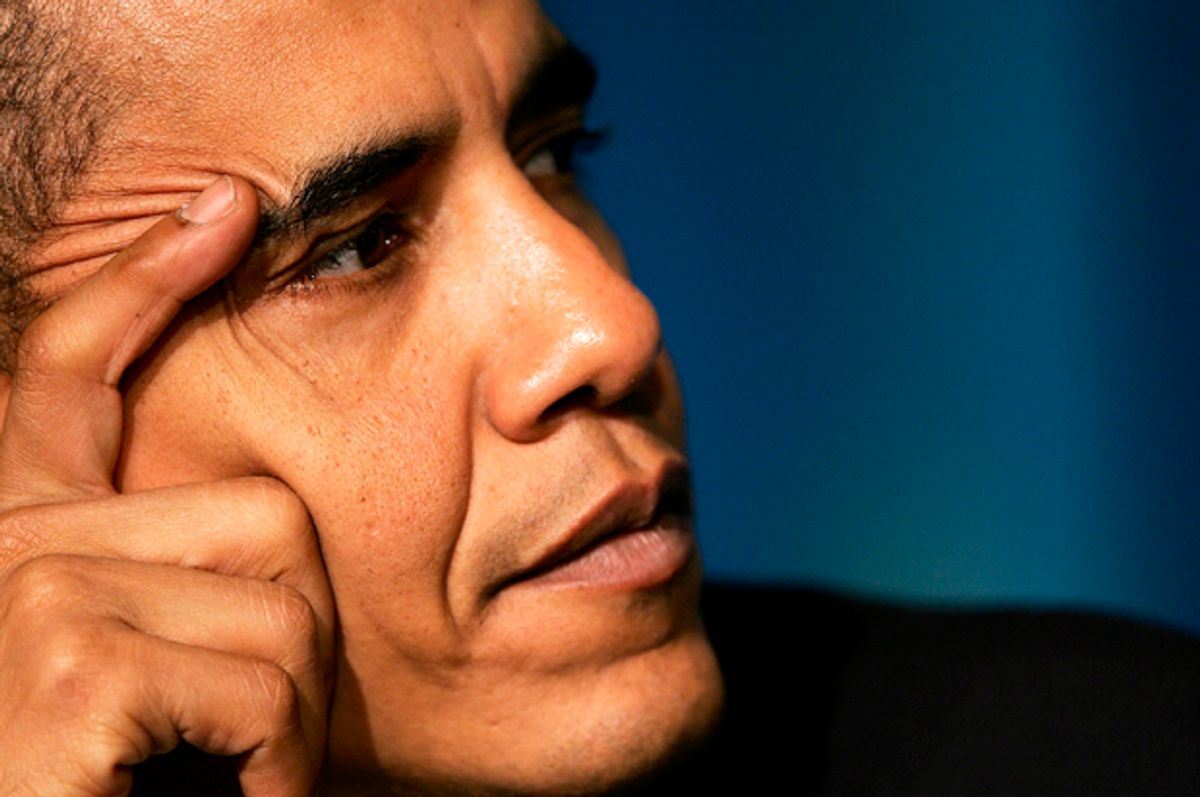The former leader of the free world is suddenly facing intense criticism.
Barack Obama has accepted a $400,000 speaking fee for a Wall Street conference that will be hosted by Cantor Fitzgerald LP, according to a report by Fox Business.
This is almost twice as much as the speaking fees Hillary Clinton charged for three speeches to Goldman Sachs after she left the State Department. She later came under immense criticism during her campaign for receiving so much money to speak to Wall Street firms. According to the Washington Post, her husband and former president Bill Clinton “earned more than $16.3 million for 72 speeches” in 2012 -- averaging around $226,000 per speech. CNN also reported he was once paid $750,000 for a speech to telecom firm Ericsson.
Obama will address a health care conference scheduled for September and the 44th president will reportedly be the keynote luncheon speaker for one day of the event. Although Obama has already signed the contract, the early reports indicate that Cantor Fitzgerald is still in the process of coordinating the details with the former president. Obama can still reportedly pull out of the deal if there are scheduling conflicts or if he finds himself on the receiving end of negative publicity.
And Obama's already received boatloads of negative publicity.
"Obama's $400,000 Wall Street speaking fee will undermine everything he believes in," wrote Vox's Matthew Yglesias this week. "To fight the rising tide of populism, mainstream leaders need to raise their ethical game," he argued.
"The more that Wall Street firms give out-of-office presidents and big-name politicians these paydays, the more they become the norm," Aaron Blake of The Washington Post wrote. "Other presidents will know that such payments are on the table, and it risks coloring their decisions with regard to Wall Street and special interests." A point Vox's Yglesias agreed with:
Indeed, to not take the money might be a problem for someone in Obama's position. It would set a precedent.
Obama would be suggesting that for an economically comfortable high-ranking former government official to be out there doing paid speaking gigs would be corrupt, sleazy, or both. He'd be looking down his nose at the other corrupt, sleazy former high-ranking government officials and making enemies.
Which is exactly why he should have turned down the gig.
The election in France earlier this week shows that the triumph of populist demagogues is far from inevitable. But to beat it, mainstream politicians and institutions need to shape up — not just with better policies, but with the kind of self-sacrificing spirit and moral leadership that successful movements require.
Blake also pointed out that bans on lobbying by former government employees are usually written because "it became so normal for former aides to cash in afterward and basically use their government jobs for a future payday on behalf of well-heeled special interests. The prospect of future wealth became a given."
Of course, the criticism continued on Twitter:
But not everyone thinks Obama's legacy is on the line with a couple of big post-presidency paydays:
[jwplayer file="http://media.salon.com/2017/04/43023de19cdd0372abb214d09b8a773a.mp4" image="http://media.salon.com/2017/04/081323fe4cea24127bcbd664b5a8e75f_1.jpg"][/jwplayer]

Shares